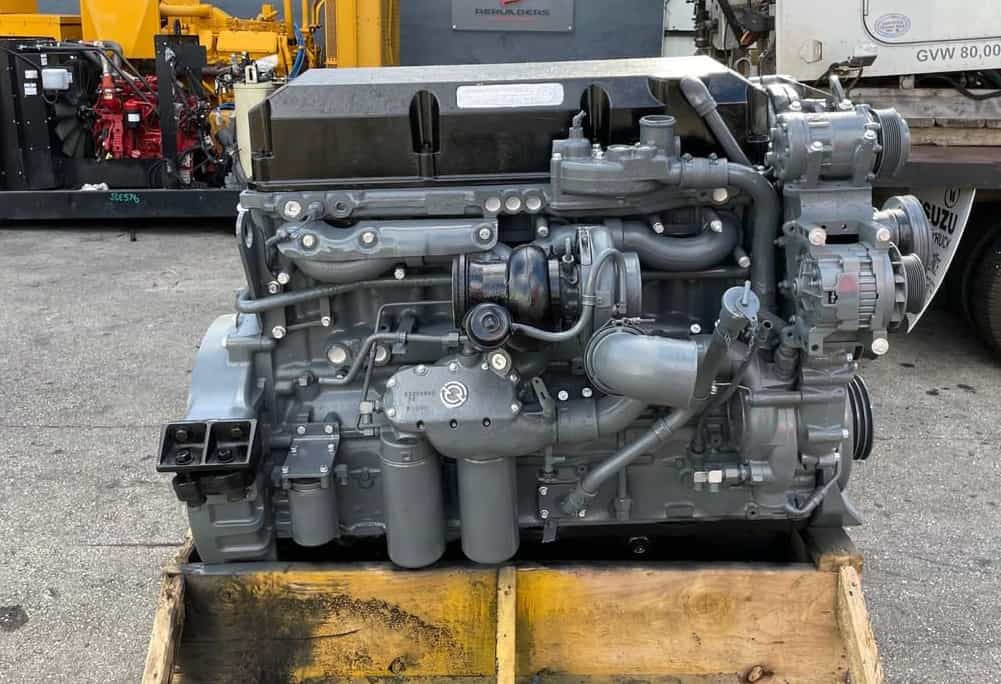Are you noticing that you have a Detroit Diesel Series 60 losing prime?
When everything is going well, the engine should run fairly well. After all, this engine that is electronically-controlled has been known to have a good history, which is why many operators consider to keep using it over the rest.
But at the same time, there may be some concerns that come along throughout its lifespan. It definitely has its share of problems as with any other engine. This is why we are here to discuss some problems that come with it, including losing prime. Let’s jump right into it.

Diesel Detroit Diesel Series 60 Losing Prime
The Diesel Detroit diesel series 60 is a good engine without any doubt. Yet, there are some instances when problems arise such as the engine losing prime.
Some people complain about their engine stalling because of fuel loss, and it appears to happen between the fuel tank and their main fuel filter. However, there appears to be zero fuel leak, yet after emptying the primary fuel filter, it only takes a few seconds before their engine stalls. Hence, there is a constant need for them to refuel their filter.
If this is the case, you may want to inspect the line where it goes into the tank. Then, put some pressure in where it goes to the primary filter to check if there are leaks in the line. It is also possible that the pickup tube in your tank has some damage, or the suction line has collapsed on the inside and blocks the fuel off.
Another issue expressed by some owners is that their engine has a hard start, then once it is running, problems would arise and they would need to start their fuel tank. However, they still get air even after running the engine for a while.
They have also changed all of their filters and even replaced their fuel pump, yet air still slowly gets into the system. After replacing the fuel lines, they assume that a pin hole may be present on the fuel system’s suction side. They even got rid of the stand tube found in the tank and hoped it was all they needed to fix the problem.
After pressurizing the fuel tank and then purging air away from the system, the fuel pressure goes to normal and then becomes 55 PSI on the highway.
What may help in this situation is by replacing the check valve and putting different fuel lines. Some people have observed positive results after doing this, as well as in placing another electric fuel pump on their tank just to make sure that the fuel pressure stays within normal.
Additionally, if you currently have an aftermarket fuel filter, you can try to remove this and run the factory setup you have. Putting a fuel shut off valve by your filters may also work, yet this is not advisable during the summer. In the winter, however, you need to close your ball valve to help the vehicle to start better.
Another thing you can do is to check the engine oil and inspect for signs of fuel dilution. There are many experts who have observed injectors tend to leak fuel and then lose prime from the injector’s solenoid body, as well as the injector nozzle o-rings. This is why performing a diagnostic routine to run your engine from a bucket of fuel may be a good thing to do.
Simply get yourself a white bucket and make your fuel system such from and to the pail. You may see some fuel aeration, and it is normal to observe a few air bubbles on the initial start up until your fuel system has been primed.
However, if fuel aeration continues, or you still see very visible air bubbles from your return fuel, this means there is a problem that needs to be addressed. Or, you can also make yourself a pressure canister for pressurizing your cylinder head, or even the entire fuel system. You can do this when you need to rule out pinhole leaks issues. But take caution as pressurized fuel is hazardous. You should never overpressure your system and 60 up to 80 PSI is more than enough.
Your Next Step
When you have a Detroit Diesel Series 60 losing prime, it is important to keep in mind that some preventive maintenance can definitely go a long way. But it all begins with determining the actual cause of the problem, so you can perform the best troubleshooting techniques possible,
First, make it a point to inspect for leaks since 90 percent of problems with pumps happen on the intake or suction portion of your pump. When there are leaks on the intake line, this can lead to your pump losing its prime.
Be sure that your pipe connections on your housing are secure and tight. There should be no cracks or poorly-attached fittings to your intake line.
Also, inspect the foot valves, which prevent water from getting into your intake line. If you notice that the foot valve tends to leak, then the pump ends up losing its prime in between starts. Getting a replacement for your faulty valve is a viable solution to this issue.
Next, check for any obstruction in the line. This is another possible cause of the Series 60 losing prime. Any blockage in your intake line leads to an overheating of the water in your pump casing, which can overheat the casing leading to priming issues.
Final Thoughts
Overall, the Detroit Diesel series 60 is a good and reliable engine. But it is most certainly not without any problem, and one of these includes losing prime. Thus, it is best to determine the cause of the problem, so you can perform the right technique that will solve this issue once and for all.